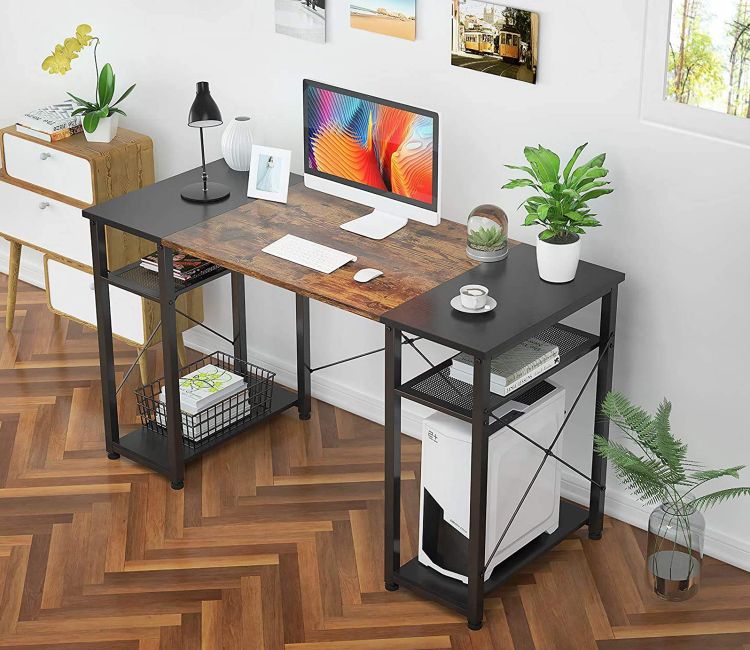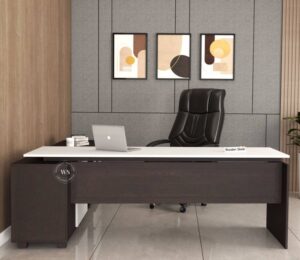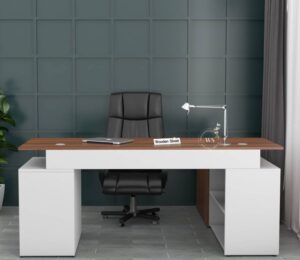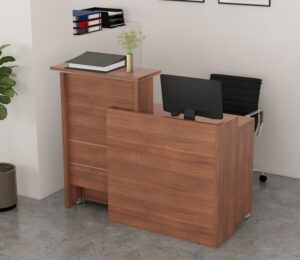
An office table is more than just a piece of furniture—it’s the foundation of your workspace, influencing your comfort, focus, and overall productivity. Selecting the right office table can make a significant difference in your work performance, helping you stay organized and efficient. In this guide, we’ll explore the key factors to consider when choosing the perfect office table to boost your productivity.
Understanding Your Workspace Needs
Before you start shopping for an office table, it’s crucial to assess your specific needs and workspace requirements. Ask yourself these questions:
- What type of work do you primarily do? If you need to accommodate a computer, paperwork, or multiple screens, a larger desk with more surface area might be essential.
- How much space do you have available? Consider the size of your room and how much space you can dedicate to the desk without crowding the area.
- Do you need storage options? Some office tables come with built-in drawers or shelves that can help keep your work essentials organized and within reach.
Understanding these basics will help you narrow down your options and find a table that suits your work style and fits perfectly within your space.

Ergonomics and Comfort
Ergonomics plays a vital role in choosing an office table, as it directly impacts your physical health and comfort while working. Here are some ergonomic factors to keep in mind:
- Height of the table: Your office table should be at a height that allows your arms to rest comfortably at a 90-degree angle when typing. Adjustable desks are a great option for creating a personalized setup.
- Legroom: Ensure that there is enough space under the desk for you to stretch and move your legs without feeling cramped.
- Chair compatibility: Make sure that your office chair and table work well together. Ideally, the chair should allow you to maintain a comfortable posture with your feet flat on the ground and your back well-supported.
Investing in an ergonomic office table not only enhances comfort but also reduces the risk of long-term health issues like back pain and repetitive strain injuries.

Material and Build Quality
The material and build quality of the office table are crucial factors that affect its durability, appearance, and cost. Common materials for office tables include:
- Wood: Classic and elegant, wooden desks are sturdy and long-lasting. They come in various finishes and colours, making them a versatile choice for most office decors.
- Metal: Metal desks are known for their strength and durability. They often have a sleek, modern look and can withstand heavy use, making them ideal for industrial or minimalist workspaces.
- Glass: For a contemporary style, glass office tables offer a clean, sophisticated appearance. However, they can be more delicate and require regular cleaning to keep them looking polished.
Choosing the right material depends on your aesthetic preference, budget, and how durable you need the desk to be.

Design and Style
The design of your office table can significantly impact your mood and productivity. A well-designed desk should be both functional and aesthetically pleasing. Consider these design aspects:
- Minimalist designs: Simple and clutter-free designs are excellent for promoting focus and reducing distractions in your workspace.
- Color schemes: Light-colored desks can make a room feel more open and spacious, while darker tones add a touch of sophistication.
- Shape and configuration: Depending on your room layout, you might prefer a rectangular desk, an L-shaped desk for corner setups, or a U-shaped desk for a wraparound workspace.
The right design will create a harmonious and inspiring environment that makes you excited to sit down and get to work each day.
Budget Considerations
Office tables come in a wide range of prices, so it’s important to set a budget before you start shopping. While it might be tempting to go for the cheapest option, investing in a high-quality desk can pay off in the long run. Consider the desk’s durability, functionality, and warranty when making your decision to ensure you get the best value for your money.

Additional Features to Enhance Productivity
Modern office tables come with a variety of features that can further boost your productivity, such as:
- Cable management systems: To keep cords organized and out of sight.
- Adjustable height options: Sit-stand desks allow you to alternate between sitting and standing, promoting better posture and reducing fatigue.
- Built-in storage: Desks with drawers or shelves help keep your workspace tidy and essentials within easy reach.
These features can help create a more organized and efficient workspace, enabling you to focus on the tasks at hand.
Conclusion
Choosing the perfect office furniture office table is a crucial decision that can significantly impact your productivity and comfort. By considering factors like ergonomics, material, design, and additional features, you can create a workspace that supports your work habits and keeps you motivated. Invest in a desk that suits your needs, and watch how your productivity soars as you work in a more comfortable and inspiring environment.



